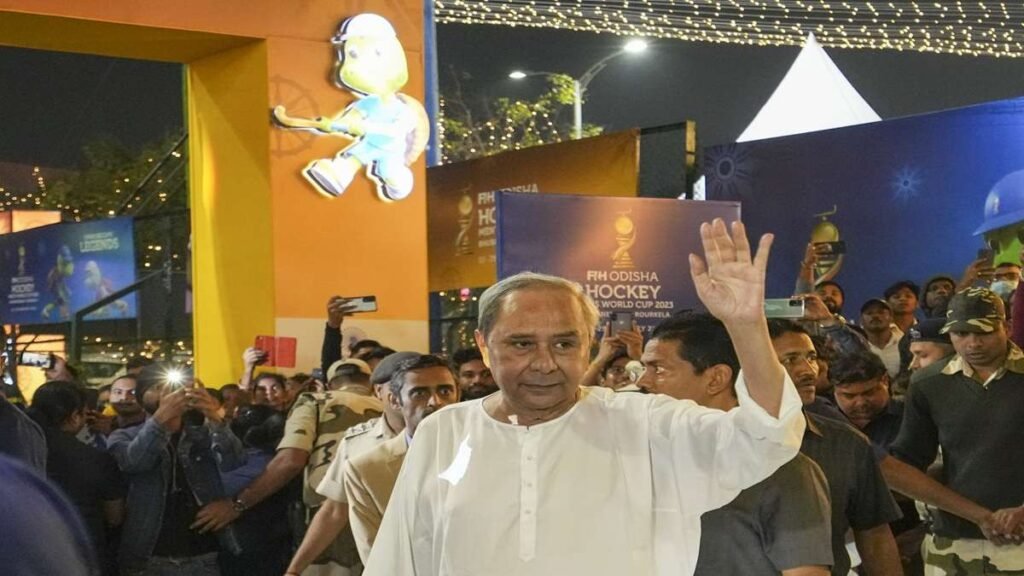Waqf Amendment Bill: The Lok Sabha passed the bill with a 288-232 vote in the early hours of Thursday after over 12 hours of debate. In the Rajya Sabha, Rijiju emphasised that the bill aims to usher in transparency, accountability and efficiency in the management of Waqf properties.
Waqf Amendment Bill: The Biju Janata Dal (BJD) MP Sasmit Patra on Thursday (April 3) said that our party has always upheld the principles of secularism and inclusivity, ensuring the rights of all communities. Patra expressed his views on the Waqf Amendment Bill and added that we deeply respect the diverse sentiments expressed by different sections of the Minority communities regarding the Waqf Bill.
BJD later took a U-turn on the Waqf Amendment Bill and said to its MPs that there’s no party whip in the Rajya Sabha today.
“The Biju Janata Dal has always upheld the principles of secularism and inclusivity, ensuring the rights of all communities. We deeply respect the diverse sentiments expressed by different sections of the Minority communities regarding the Waqf (Amendment) Bill, 2024. Our Party, having taken these views into careful consideration, has entrusted our Hon’ble Members in the Rajya Sabha with the responsibility of exercising their conscience in the best interest of justice, harmony and the rights of all communities, should the Bill come up for voting. There is no Party Whip,” Sasmit Patra posted on X.
Lok Sabha passes ‘Waqf Amendment Bill’
On Wednesday (April 2), the Lok Sabha passed the Waqf Amendment Bill after a marathon and heated debate, during which members of the INDIA bloc fiercely opposed the legislation while the BJP and its allies strongly supported it, saying it would bring transparency and enhance the efficiency of Waqf boards.The Lower House of Parliament sat beyond midnight to pass the legislation.Speaker Om Birla later announced the division’s result. “Subject to correction, Ayes 288, Noes 232. The majority is in favour of the proposal,” he said.
The government introduced the revised bill after incorporating the recommendations of the Joint Parliamentary Committee, which examined the legislation introduced in August last year. The bill seeks to amend the Act of 1995 and improve the administration and management of Waqf properties in India.It aims to overcome the shortcomings of the previous act and enhance the efficiency of Waqf boards, improving the registration process and increasing the role of technology in managing waqf records.Meanwhile, Union Parliamentary Affairs Kiren Rijiju today moved a motion for consideration of the Waqf (Amendment) Bill of 2025 and the Musalmaan Wakf (Repeal) Bill in the Rajya Sabha.
Govt tables Waqf bill in Rajya Sabha
Union Minority Affairs Minister Kiren Rijiju on Thursday rejected the opposition’s allegations that the rights of Muslims were being snatched away. While tabling the Waqf (Amendment) Bill, 2025 in the Rajya Sabha, he also clarified that the “inclusive” legislation aims to empower Muslim women and protect the rights of all Muslim sects. Some of the opposition MPs in the Upper House were wearing black as a mark of protest against the bill.
The Lok Sabha passed the bill with a 288-232 vote in the early hours of Thursday after over 12 hours of debate. In the Rajya Sabha, Rijiju emphasised that the bill aims to usher in transparency, accountability and efficiency in the management of Waqf properties, asserting that only a Muslim can become a ‘Waqif’ and said the question of the majority of members on the Central Waqf Council being non-Muslims does not arise.
Tabling the bill in the Upper House, which was examined and redrafted by a Joint Parliamentary Committee (JPC), Rijiju said the proposed legislation has nothing to do with religion, but deals only with properties.
Zero-hour duration extended in Parliament
In a significant move led by Lok Sabha Speaker Om Birla, the duration of Zero Hour in Parliament was extended on Thursday, giving public representatives a greater opportunity to highlight issues from their constituencies.Today, Zero Hour lasted for more than five hours in which 202 MPs presented their issues.Earlier, on July 18, 2019, during an extended Zero Hour, 161 MPs had raised their concerns.Fulfilling the promise made in the Business Advisory Committee (BAC) meeting, Speaker Om Birla ensured the extension of Zero Hour.
